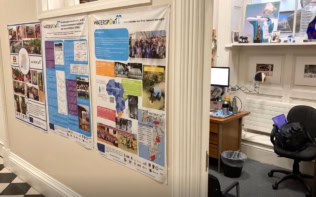A huge festival of science kicks off next week in cities across Europe. European Science and Technology Week (6 - 11 November 2000) will feature a wide range of public events to highlight the importance of basic research to the economy and our day-to-day lives. The event, organised by the European Commission, comes as the number of science graduates is falling and thousands of jobs are left unfilled in countries all over the continent. It aims not only to persuade young people that science is an exciting and rewarding career choice, but to provide an insight into science for everybody.




